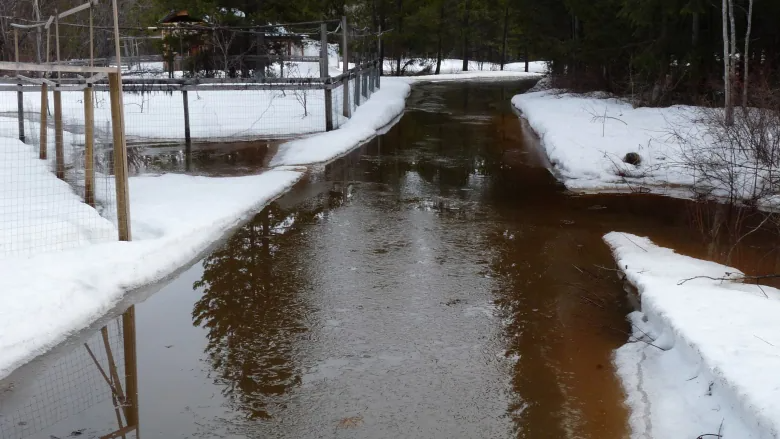Canada's single-use plastic regulations face their first legal test today as the plastics lobby and the federal government head to court. A federal court judge will hear arguments from lawyers on all sides from Tuesday to Thursday in Toronto. The federal judge, who is not expected to deliver a ruling for months, must consider whether Ottawa was justified when it listed plastic products as toxic under the Canadian Environmental Protection Act.
Hibernia heading to trial over 2019 oil spill
Hibernia Management and Development Company Ltd. is challenging charges laid by Newfoundland and Labrador's offshore energy regulator in relation to a 2019 spill that sent 12,000 litres of oil into the Atlantic Ocean. Lawyers representing the energy giant entered not guilty pleas when the case was called in St. John's provincial court on Thursday.
Competition Bureau probe of 'flushable' wipes goes down the drain
To flush or not to flush? It is a question Canada's Competition Bureau says it cannot answer. Three years ago, Friends of the Earth Canada and lawyers from Ecojustice filed a grievance with the bureau saying the makers of 20 disposable wipes were falsely advertising the products as safe to flush down the toilet. In February, the Competition Bureau informed Friends in a letter that it was closing its inquiry because it's not clear what it really means to be "flushable." "There are a number of competing guidelines about when a product can be considered to be disposable in municipal sewer systems," the letter reads. Friends CEO Beatrice Olivastri called that "totally unacceptable."
B.C. agrees to pay $300K to couple who say logging flooded their property
Lawyers for the British Columbia government have agreed to pay $300,000 to settle a lawsuit by a couple whose property flooded after a third of the forest in the surrounding watershed was cut down. The agreement came in a handwritten note that was signed by the Crown's lawyers and handed over in court on the day the trial was set to begin last month. Ray Chipeniuk and Sonia Sawchuk had launched the lawsuit in 2014, claiming that B.C. Timber Sales, the provincial Crown agency responsible for auctioning about 20 per cent of B.C.'s annual allowable cut, was negligent in its failure to take reasonable care to ensure their property in northwestern B.C. would not be damaged by the logging.
Military members eligible for Shannon contaminated water compensation could miss out
Hundreds of people including military personnel, who are eligible for compensation from the federal government and two private companies in a multimillion dollar contaminated water case in Shannon Que. are running out of time to take part in the class action. Claimants have until July 10 to come forward, but so far, only 1,250 people out of 5,000 who are eligible have filed a claim with the firm Raymond Chabot Grant Thornton, which is administering the class action.
Curve Lake hopeful ‘absolute tragedy’ of clean water crisis for First Nations ends with $8 billion settlement
Despite $8 billion coming to provide clean drinking water to communities like Curve Lake First Nation, that money won't fix the physical or emotional trauma inflicted on Indigenous peoples. “There is absolutely no amount of money that can make up for being denied clean drinking water for so many years,” says lawyer Stephanie Willsey. Willsey, who is Chippewa from Rama First Nation, helped bring a class-action lawsuit against the federal government. She says the settlement will change people’s lives and set up future generations so they won't have to face the same health crisis First Nations have been dealing with for decades.
Atlantic Gold Mining N.S. Inc. pleads guilty to environmental charges
The subsidiary of an Australian gold mining company has pleaded guilty to federal and provincial environmental charges relating to its gold mining operations on Nova Scotia's Eastern Shore. Lawyers for the federal and provincial Crown, along with a lawyer for Atlantic Mining N.S. Inc., were in Nova Scotia provincial court in Dartmouth Thursday to make sentencing arguments.
First Nations communities pursue clean drinking water through the courts
This time of year, with the temperature plunging below -20 C, a snowmobile and an ice chisel are required tools for anyone in Tataskweyak Cree Nation in need of fresh water. There’s the bottled stuff, trucked into town courtesy of the federal government, but the weekly shipment of 1,500 cases is only sufficient to meet basic consumption needs. For cleaning, cooking and basic hygiene water, many residents need a supplementary source. And rather than use their tainted tap water, they follow a snowmobile trail several kilometres to Assean Lake, pails in hand.









